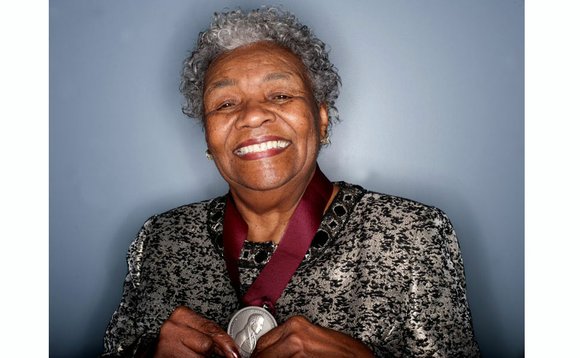60 years late
Richmond woman honored by college after being denied admission in 1956
Associated Press | 3/31/2016, 8:48 p.m.
The Associated Press
©2016, The Washington Post
As a young black girl in Stafford County, Va., in the 1950s, Gladys White Jordan saw up close how privilege was largely determined by skin color.
Her mother, a maid, kept house for the president and chancellor of the University of Mary Washington in Fredericksburg, which then served as the selective women’s college of the University of Virginia. As a teenager, Mrs. Jordan assisted her mother working in the kitchen and as a server during dinner parties for local dignitaries at Brompton, the president’s brick manse with a white-columned portico.
When the time came for Mrs. Jordan to consider her future, she dreamed of attending Mary Washington, and she broached the subject with her mother.
“The prevailing idea at that time is that you didn’t send girls to college because they were going to get married anyway, and someone was going to take care of them,” said Mrs. Jordan, 78, a Richmond resident since 1960. “But I wanted to go to college.”
But when Mrs. Jordan’s mother spoke to the president, her employer told her the school’s Board of Visitors had no interest in accepting an African-American woman, no matter how qualified, into its ranks.
Despite the landmark 1954 Brown v. Board of Education U.S. Supreme Court decision, Mrs. Jordan’s admission was denied on the basis of her race. The privilege of an education at Mary Washington, Mrs. Jordan learned, was for white people only.
“I was just sad,” Mrs. Jordan said, but she did not give up on her goal of attaining a higher education. She soon enrolled at Virginia State University, where she earned a bachelor’s degree in 1960 and a master’s degree in 1968.
“I realized that I wanted to go to school so you had to get over that feeling that you were rejected,” Mrs. Jordan said. “Move on, move on.”
Now, more than half a century later, the school that once turned her away has recognized her determination, honoring her with one of its most prestigious awards.
On March 14, she received Mary Washington University’s Monroe Medal, which acknowledges “extraordinary career achievement used to benefit humanity and society.”
(A resolution adopted by the university’s board honors Mrs. Jordan “in recognition of her perseverance to succeed in the face of discrimination and her lifelong commitment to education, social justice and equal opportunity.”)
“People need to take the initiative to do something,” Mrs. Jordan told the Fredericksburg Free Lance-Star. “You might fail, but your failure can open doors for others. We don’t succeed at everything, but suppose no one tries, suppose no one had applied.”
The first black student to enroll at Mary Washington, Jacquelyn Pulliam, came in 1962. But the school’s first black graduate, Venus Jones, did not receive her degree in chemistry until 1968.
Mrs. Jordan told The Post that she saw how far Mary Washington has come when she looked beside her at the recent award ceremony: The school’s special assistant to the president for diversity and inclusion is Leah Cox, an African-American woman.
“I said, ‘Wait a minute,’ ” Mrs. Jordan said, noting that Ms. Cox is “not a janitor or a custodian but in a decision-making role. That’s progress within itself.”
Mrs. Jordan accepted her denial from Mary Washington with grace and achieved success at VSU. Upon graduation, she accepted a teaching position in King George County as an English instructor. But, at the time, because of Virginia’s discriminating policy of Massive Resistance, the school remained segregated. She went on to teach in Richmond.
In 1980, she became one of the first faculty members at Franklin Military Academy, the first public military school in the country. Twice she was elected Teacher of the Year at Franklin, Mrs. Jordan said. She retired in 1996 after 35 years in the classroom.
(Franklin Military Academy named its chapter of the National Honor Society for Mrs. Jordan.)
Mrs. Jordan said that she felt that it was her duty to take the setback she was dealt in 1956 and turn it into a success.
She said: “I’m a fighter. But you won’t see my fighting in the streets. Go fight in other ways. Go get the credentials you need, and then opportunities will open up for you.”
The fight for civil rights, she noted, was a collective movement.
“We can never forget that,” she said. “It was not a one-person effort.”
Mrs. Jordan said that she recognized that in even a small way she had played a role in pushing for integration at Mary Washington. And her legacy at the school continued.
Her nephew, David White, graduated in 1991 from Mary Washington University and served for a time as a minority admissions recruiter.
“I’m proud of that,” she said.






